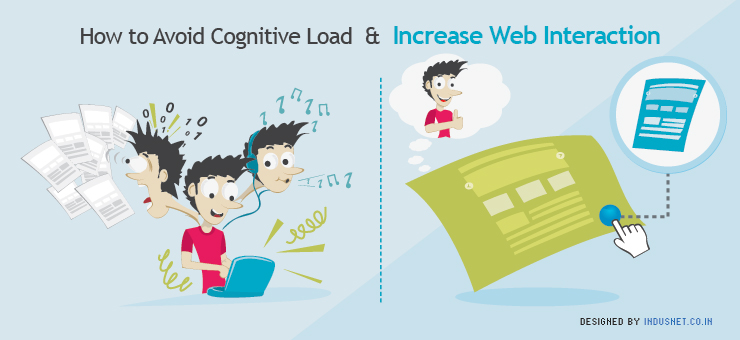
Nowadays, it is common to encounter what laymen describe as information overload. With an increasing number of websites providing information to an extent that we don’t understand where all the information comes from, how it is processed and how much of it is retained, it becomes very important to understand psychological underpinnings behind this phenomenon. Psychologists usually describe information overload as ‘Cognitive Overload’.
Understanding Cognitive Load
The term can be described as a state of mentally attending to one or more tasks in a peripheral manner, while also doing an important task in hand. This suggests that a person will have to keep track of additional things when it is actually not necessary for the primary task. It has been proved that cognitive overload can reduce optimum performance as no one can concentrate accurately on the target task when one is forced to attend to peripheral tasks as well.
How Cognitive Load Affects Web Users
In a world that is dominated more by information than knowledge, cognitive overload is a very common phenomenon. The moment someone starts to browse, they will have a number of tabs opened, a smartphone that is constantly being used to tweet or check updates, and probably even music playing in the background. If you are running a website and a person in the described situation is your target audience, you can very well imagine how much information that is displayed on your website actually enters your target audience’s mind.
The truth is, very little information is processed because of all the peripheral activities that your target audience engages while visiting your website. This leads to a lower performance, when it comes to what you expect from your target audience, and this may mean you will have a lower click-through rate, lower revenue or you might just be ignored. What actually makes things worse is, when your own website indulges in cognitive overload.
Avoiding Cognitive Load on Websites
Most businesses and enterprises like to offer a lot of information on their websites and utilize screen size to the maximum. What results is cognitive overload upon cognitive overload, leading to ineffective marketing campaigns, ineffective sales, and ineffective communication with the target audience.
In order to reduce cognitive overload:
Hiring Copywriters, Web Designers and Editors to Reduce Cognitive Overload
The next step is to ensure that the published content on your website does not lead to cognitive load. In this case, hiring a typographical expert can ensure that white spaces are increased and graphics, images, videos and advertisements are reduced. Number of words in published text can be reduced by hiring a shrewd and merciless editor. We are always tempted to write lengthy sentences and unnecessary words. Most editors insist that by doing so, you are losing not only your reader, but also your larger business.
The key is to reduce situations which may cause cognitive load to your website’s visitors, who may already be engaging in multiple activities. By ensuring that your website is as simple and minimalist as possible, you can make sure that the ill effects of cognitive load is avoided and web interaction is increased.